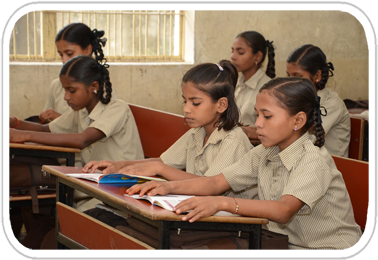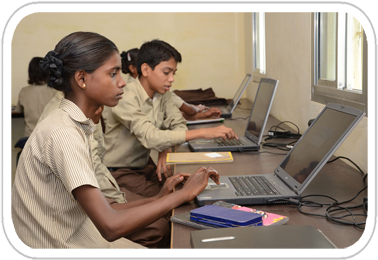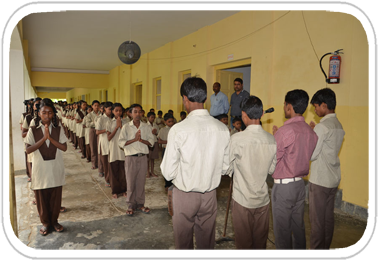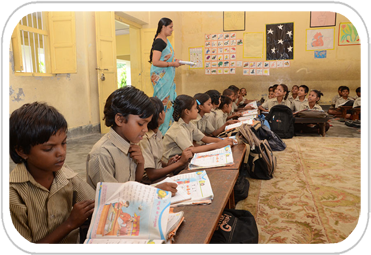 |
|
|

|
|

|
|
Fourteen-year-old Magala Prasad is still to decide what vocational training course he will choose after finishing school. Studying in class seven in Project Mala School in his village Guria in the Mirzapur-Bhadhoi region of Uttar Pradesh, India, Prasad can’t wait to lend a helping hand to his father Ramesh, a carpet weaver.
|
|
|
|
Thankfully, he won’t have to give up his childhood for it. It wasn’t always like this, however. About 23 years ago, lack of quality education in the Mirzapur region and most families being unable to afford school fees meant children would be put to work in the fields, manual labor or carpet weaving. Ever since Project Mala Schools started with the help of OBEETEE and some individual patrons, there has been a sea change in thinking and families are now able to send their children to school.
|
|
|
|
|
|
The Project Mala School in Guria is a middle school (classes six, seven and eight) and is built on acres of land given by OBEETEE. Everyday, it serves breakfast and lunch to over 200 students – meals that meet more than half of the children’s daily nutritional needs, ensuring their health does not suffer. Apart from regular medical check-ups with complete immunization and deworming, the children also get free books, stationery, school bags and uniform.
|
|
|
|
|
|

|
|

|
|
|
|
The education experience at Project Mala Schools aims not only at formal education, but also personal growth and personality development of abused and potential child labor, while also imparting vocational skill training.
|
|
|
|
|
|
|
|
|
|
In the past 23 years then, more than 7,300 children from 45 villages have been enrolled in Project Mala Schools for basic primary education, and more than 5,000 children have completed three years of accelerated non-formal education from the six schools and have been streamlined in government primary and other schools. There has also been an increase in the awareness of parents about child education, women empowerment and articulation of aspirations.
|
|
|
|
|
|

|
|
|
|
 |
|
|
|
|
|